
Kód: 09089615
Antipolitics in Central European Art
Autor Klara Kemp-Welch
Art historians have tended to frame late socialist central European art as either 'totalitarian' or 'transitional'. This bold new book challenges this established viewpoint, contending that the artists of this era cannot be simply ... celý popis
- Jazyk:
 Angličtina
Angličtina - Väzba: Brožovaná
- Počet strán: 358
Nakladateľ: Bloomsbury Publishing, 2017
- Viac informácií o knihe

Mohlo by sa vám tiež páčiť
-

East Art Map
36.89 € -11 % -
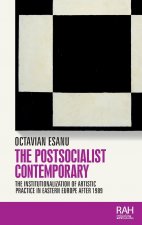
Postsocialist Contemporary
136.34 € -

Networking the Bloc
41.62 € -17 % -

JFL
12.26 € -5 % -

Chroma
10.95 € -23 % -

Work
13.36 € -19 % -

M Train
13.36 € -19 % -

When It Is Darkest
20.81 € -13 % -

Agency
9.64 € -13 % -

Fantastic Beasts: The Crimes of Grindelwald - The Original Screenplay
10.65 € -20 % -

Informal Politics in Post-Communist Europe
205.83 € -

Central and Southeast European Politics since 1989
130.71 € -

Lonely Planet Epic Runs of the World
29.65 € -16 % -

Hold Still
10.65 € -20 % -

NKJV Study Bible, Hardcover, Burgundy, Full-Color, Comfort Print
50.87 € -14 % -

Can't Stop Cursing You, Vol. 1
11.96 € -15 % -

Spinning Silver
9.64 € -6 % -

King of the Blues: The Rise and Reign of B.B. King
29.45 € -

Ancient Egypt
35.08 € -5 % -

Sonic The Hedgehog: The IDW Collection, Vol. 1
50.87 € -15 % -

Lilac
26.24 € -

Assembly
10.25 € -19 % -

Bravely
17.29 € -17 % -

Dark Enchantment Minis - Pocket Sized Fantasy Art Coloring Book
9.24 € -

Hilma af Klint & Piet Mondrian: Forms of Life (Hardback) /anglais
48.46 € -13 % -

Polish'd: Modern Vegetarian Cooking from Global Poland
28.05 € -15 % -

Direction and Destiny in the Birth Chart
29.45 € -

Comptia Cysa+ Cybersecurity Analyst Certification All-In-One Exam Guide, Third Edition (Exam Cs0-003)
65.15 € -13 % -

The Year of Magical Thinking: The Play
14.27 € -6 % -

Seven Daughters Of Eve
12.06 € -22 % -

Audio Power Amplifier Design
100.04 € -

Bag Making Bible
18.39 € -23 % -

Nana, Vol. 2
11.35 € -12 % -

Reflex Zone Therapy of the Feet
24.12 € -

European Stories
238.71 € -

Angel Dark and Other Short Stories
25.63 € -

Insatiable
13.87 € -15 % -

Politically Unbecoming
10.15 € -11 % -

Dog Aggression System Every Dog Owner Needs
27.35 € -

The Development of the Personality: Seminars in Psychological Astrology; V. 1
23.22 € -16 % -
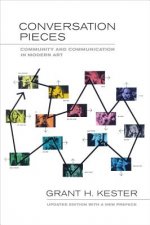
Conversation Pieces
47.75 € -
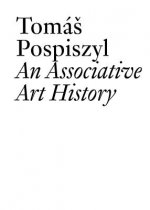
Tomas Pospiszyl
30.16 € -2 % -

High-Performance Java Persistence
45.14 € -

Korean Phrasebook
9.14 € -

History of Graphic Design
57.01 € -10 % -

The Kybalion: Centenary Edition
19.20 € -23 % -

Lonely Planet Tanzania
30.36 € -

Tom Hiddleston
9.95 € -22 % -

Former West
39.31 € -12 % -

Magic of M.C.Escher
26.94 € -23 % -

Jurassic Park - Das Original-Hörspiel zum Kinofilm
16.08 € -

Blok A5 premium Harry Potter
12.76 € -8 % -

Haydn:Complete Piano Concertos
34.18 € -

Sprechen Schreiben Mitreden
32.47 € -

Aus Indien und Iran
37.10 € -

MERMAID MELODY PICHI PICHI PITCH 5
10.55 € -5 %
Darčekový poukaz: Radosť zaručená
- Darujte poukaz v ľubovoľnej hodnote, a my sa postaráme o zvyšok.
- Poukaz sa vzťahuje na všetky produkty v našej ponuke.
- Elektronický poukaz si vytlačíte z e-mailu a môžete ho ihneď darovať.
- Platnosť poukazu je 12 mesiacov od dátumu vystavenia.
Viac informácií o knihe Antipolitics in Central European Art
Nákupom získate 118 bodov
 Anotácia knihy
Anotácia knihy
Art historians have tended to frame late socialist central European art as either 'totalitarian' or 'transitional'. This bold new book challenges this established viewpoint, contending that the artists of this era cannot be simply caricatured as dissident heroes, or easily subsumed into the formalist Western canon. Klara Kemp-Welch offers a compelling account of the ways in which artists in Poland, Czechoslovakia and Hungary embraced alternative forms of action-based practice just as their dissident counterparts were formulating alternative models of politics - in particular, an 'antipolitics' of self-organization by society. Drawing on Vaclav Havel's claim that 'even a word is capable of a certain radiation, of leaving a mark on the "hidden consciousness of a community"', the author argues that all independent artistic initiatives in themselves served as a vehicle for opposition, playing a part in the rebirth of civil society in the region. In doing so, she makes a case for the moral and political coherence of Central European art, theory and oppositional activism in the late-socialist period and for the region's centrality to late-twentieth century intellectual and cultural history. Spanning a period punctuated by landmark events - the crushing of the Hungarian Revolution of 1956; the Warsaw Pact troops' invasion of Czechoslovakia in 1968; the signing of Charter '77 by dissident intellectuals in 1977; the birth of the Polish Solidarity movement in 1980 - while presenting powerful new readings of the work of six key artists - Tadeusz Kantor, Julius Koller, Tamas Szentjoby, Endre Tot, Ji?ri Kovanda and Jerzy Bere's - Antipolitics in Central European Art anchors art historical analysis within a robust historical framework. It traces the passage from a modernist commitment to 'disinterest', through successive waves of doubt, dissent, ironic disengagement and reticent engagement, to the eventual exhaustion of antipolitics as a strategy in the 1980s as imperatives to engage in direct political dialogue gained ground. This richly illustrated study reveals the struggle of Central European artists to enjoy freedom of expression and to reclaim public space, from within a political situation where both seemed impossible.
 Parametre knihy
Parametre knihy
Zaradenie knihy Knihy po anglicky The arts History of art / art & design styles History of art & design styles: from c 1900 -
46.95 €
- Celý názov: Antipolitics in Central European Art
- Podnázov: Reticence as Dissidence Under Post-Totalitarian Rule 1956-1989
- Autor: Klara Kemp-Welch
- Jazyk:
 Angličtina
Angličtina - Väzba: Brožovaná
- Počet strán: 358
- EAN: 9781784533144
- ISBN: 1784533149
- ID: 09089615
- Nakladateľ: Bloomsbury Publishing
- Hmotnosť: 790 g
- Rozmery: 178 × 235 × 24 mm
- Dátum vydania: 30. March 2017
Obľúbené z iného súdka
-

Dark Souls III: Design Works
50.07 € -

Dark Souls: Design Works
34.28 € -15 % -

Bauhaus
13.87 € -8 % -

Dark Souls II: Design Works
49.36 € -1 % -

Palette Perfect
22.41 € -9 % -
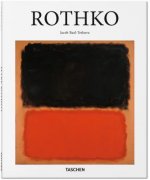
Rothko
14.77 € -2 % -

Kay Nielsen. East of the Sun and West of the Moon
17.49 € -17 % -

Why You Better Call Saul
17.69 € -15 % -

Breaking the Rules of Watercolour
21.61 € -23 % -

Abstract Expressionism
16.28 € -23 % -
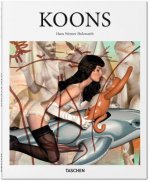
Koons
18.59 € -

A Way of Living: The Art of Willem de Kooning
66.96 € -

Neo Rauch: At the Well
44.03 € -

Andy Warhol 'Giant' Size
128.50 € -

Nanduti, Lace of Paraguay
30.16 € -

Jenny Saville
122.37 € -23 % -

Neo Rauch
52.08 € -5 % -

Paulina Olowska
30.06 € -

Luc Tuymans: Intolerance
99.14 € -

Basquiat
21.71 € -16 % -

Albert Oehlen
69.57 € -4 % -

Dali. The Paintings
20.30 € -

Final Fantasy Ultimania Archive Volume 1
34.88 € -13 % -
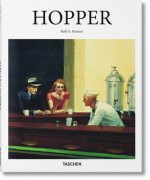
Hopper
13.87 € -34 % -
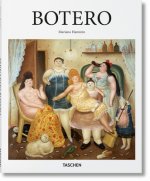
Botero
16.58 € -28 % -

Botanicals
18.59 € -9 % -

August Sander: Face of Our Time
10.65 € -

The Art of Horizon Zero Dawn
32.27 € -13 % -

Cats Galore
25.43 € -1 % -

Art of Atari
34.58 € -14 % -

Dali
16.28 € -23 % -

The Art of Loish
29.65 € -16 % -
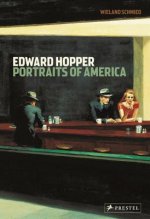
Edward Hopper
12.06 € -23 % -

Art of John Harris: Beyond the Horizon
26.94 € -23 % -

Pop Art
16.28 € -23 % -

Gio Ponti
15.27 € -16 % -

Infinity Net
16.58 € -21 % -

Charles Tunnicliffe
46.45 € -5 % -

Ocean Liners
36.49 € -34 % -

The Legend of Zelda: Hyrule Historia
36.69 € -9 % -

David Hockney's Dog Days
10.95 € -23 % -

J. C. Leyendecker: American Imagist
47.45 € -21 % -

Sketchbook of Loish
29.65 € -16 % -
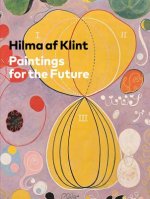
Hilma af Klint
57.31 € -11 % -
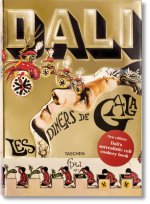
Dali. Les diners de Gala
60.52 € -13 % -

Andrzej Wroblewski
47.45 € -6 % -
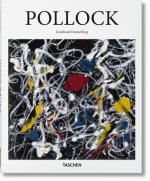
Pollock
17.08 € -19 % -
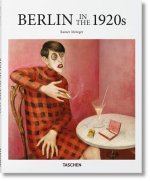
Berlin in the 1920s
14.77 € -2 % -

Egon Schiele
16.58 € -21 %
Osobný odber Bratislava a 2642 dalších
Copyright ©2008-24 najlacnejsie-knihy.sk Všetky práva vyhradenéSúkromieCookies



 21 miliónov titulov
21 miliónov titulov Vrátenie do mesiaca
Vrátenie do mesiaca 02/210 210 99 (8-15.30h)
02/210 210 99 (8-15.30h)